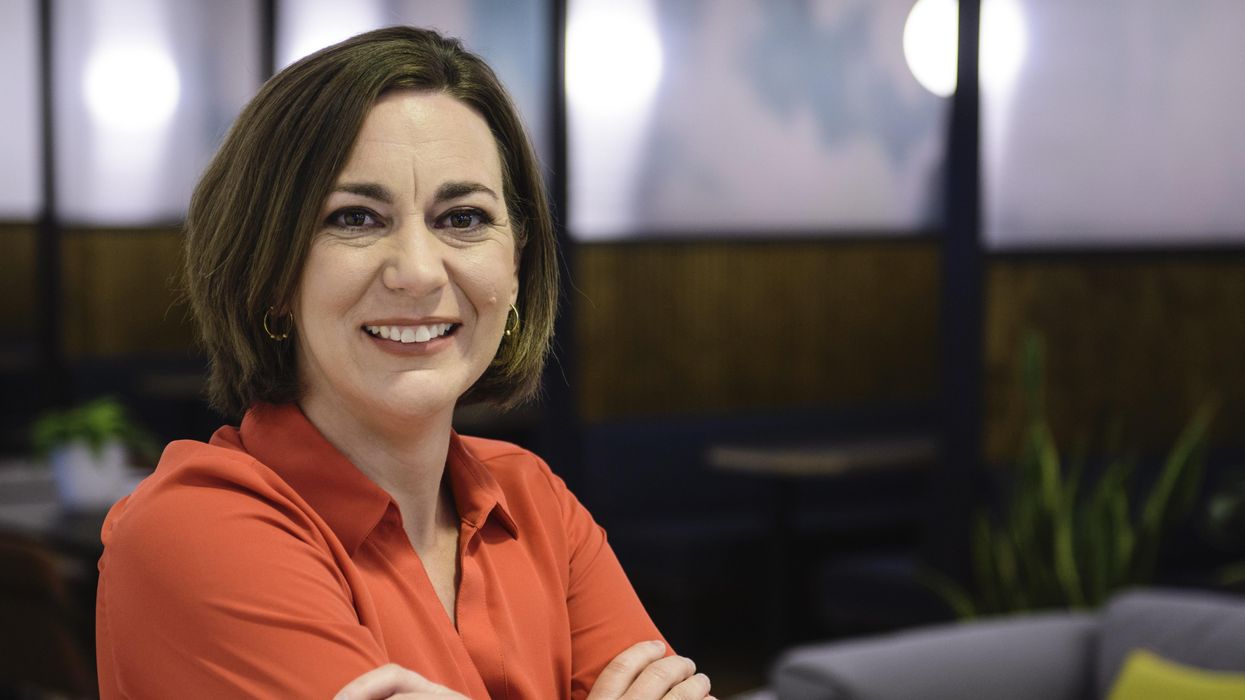This is the fifth installment of an ongoing Q&A series.
As Democrats take power in Washington, if only tenuously, many democracy reform groups see a potential path toward making the American political system work better. In this installment, Tiffany Muller, president of End Citizens United and and its affiliate Let America Vote, answers our questions about 2020 accomplishments and plans for the year ahead. Her organization takes a progressive approach to money-in-politics and voting rights reform. Muller's responses have been edited for clarity and length.
First, let's briefly recap 2020. What was your biggest triumph last year?
Electing a Democratic trifecta that's committed to comprehensive democracy reform. End Citizens United and Let America Vote made incredible progress toward cementing anti-corruption and voting rights reforms as core elements at the top of the Democratic Party's agenda. Whether it was protecting vulnerable House freshmen, helping to flip the Senate with all five winning Democrats rejecting corporate political action committee money, electing a new president or protecting the right to vote by fighting back against misinformation, I'm proud of our team's work throughout 2020 — all of which was accomplished working from home during a global pandemic!
And your biggest setback?
Losing some fantastic House freshman members who flipped battleground districts in 2018 and were anti-corruption champions in Congress. Those losses hurt, but we're proud of the work we did to support them and what they accomplished in office. Suffice it to say it won't be the last we hear from these incredible leaders anytime soon.
What is one learning experience you took from 2020?
Voting is our constitutional right as Americans but this past year proved that we can't take it for granted. Our country has long had a dark history of voter suppression — particularly in Black and brown communities — and we saw the attacks on the right to vote in 2020 ramped up in unprecedented ways and carried out by lawmakers, corporations and mega-donors who engaged and funded campaigns that spewed misinformation. In 2021, we're continuing to be vigilant and proactive in the fight to protect the right to vote and counteract these efforts in order to protect the foundational principles of our democracy, especially by working to pass the For the People Act.
Now let's look ahead. What issues will your organization prioritize in 2021?
Our top priority is making sure the For the People Act (HR 1/S 1), a transformational package of anti-corruption, voting and ethics reforms, gets signed into law. And the momentum to pass the For the People Act keeps building. Signing the bill into law would end gerrymandering, make voting easier and more secure, and shine a light on dark money in politics just to name a few of the transformational reforms. Passing HR 1/S 1 would finally allow us to make real progress on critical issues impacting Americans' lives, like accessing affordable health care, lowering the cost of prescription drugs and ending gun violence.
How will Democratic control of the federal government change the ways you work toward your goals?
We're switching gears from fighting back every day against the most corrupt administration in American history and rampant misinformation to working with a Democratic trifecta committed to making sure critical reform legislation like the For the People Act is passed into law. Democracy reform is attainable and prioritized under Democratic leadership, so we're switching our game plan from defense to offense.
What do you think will be your biggest challenge moving forward? And how do you plan to tackle it?
Finding enough Republicans who will support reform legislation. Rooting out corruption resonates with voters across party lines. Americans around the country are fed up with politicians not standing up to special interests and want Congress and statehouses to change that. But most Republicans are either afraid to speak out, or are clearly in the pockets of the special interests that are demanding they rig the system further and further toward their own benefit. Our goal is to prove to Republicans up and down the ballot that there are consequences for opposing these reforms — and that it isn't just the right thing to do, it's smart politics.
Finish this sentence. In two years, American democracy will ...
be stronger than ever thanks to major anti-corruption and democracy reforms like the For the People Act.




















